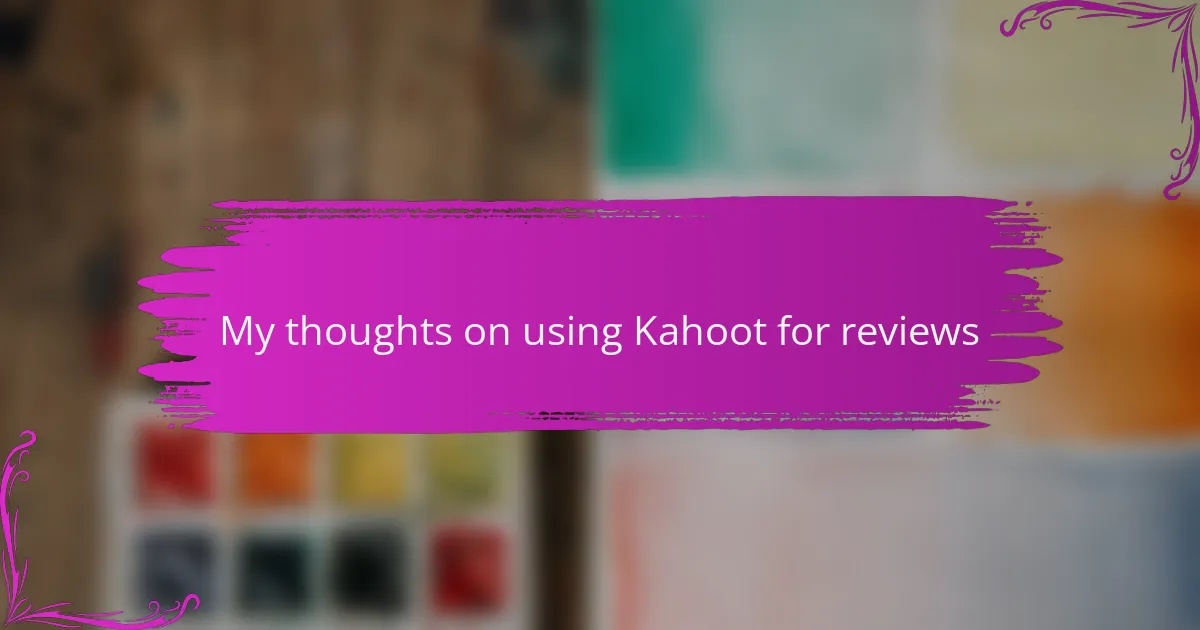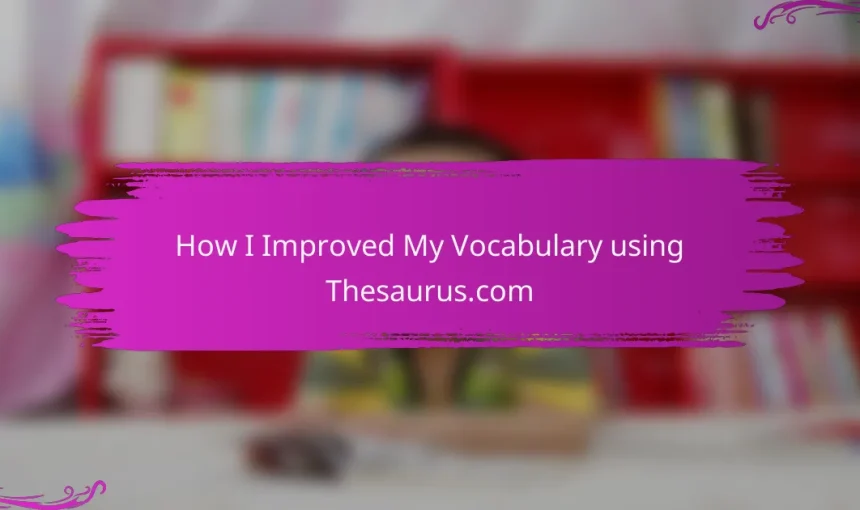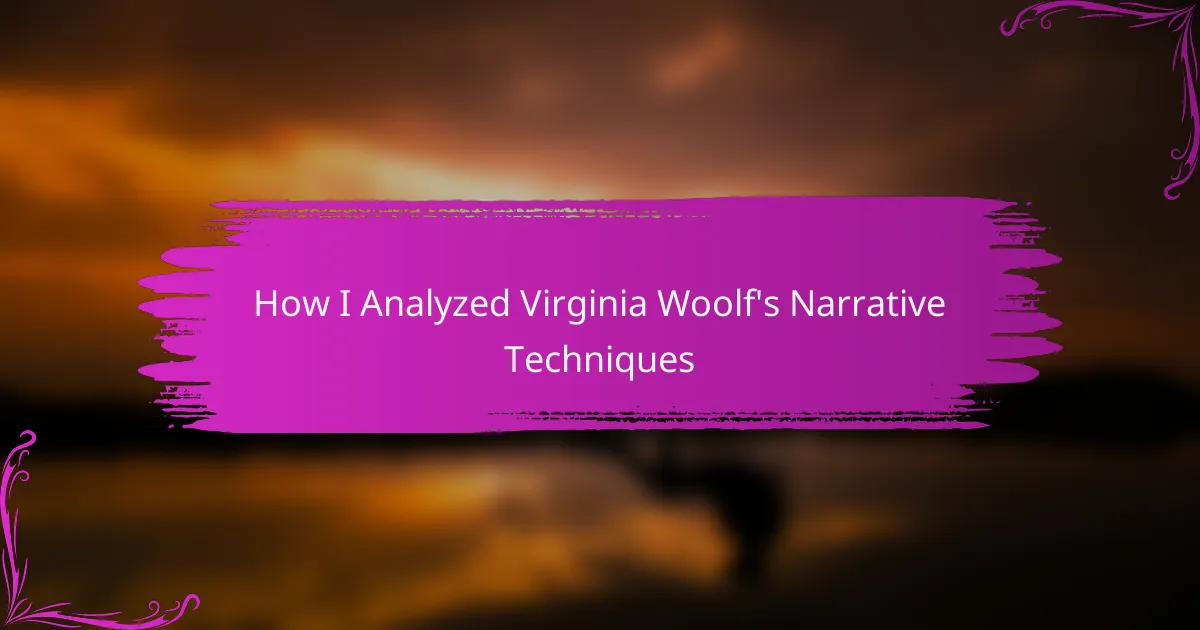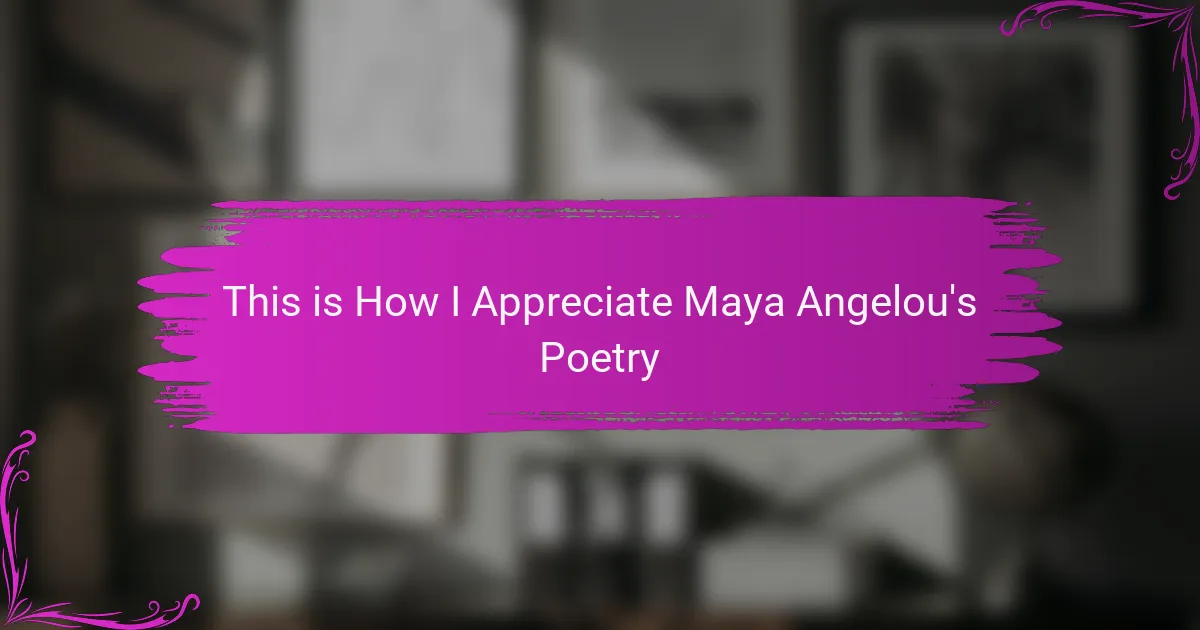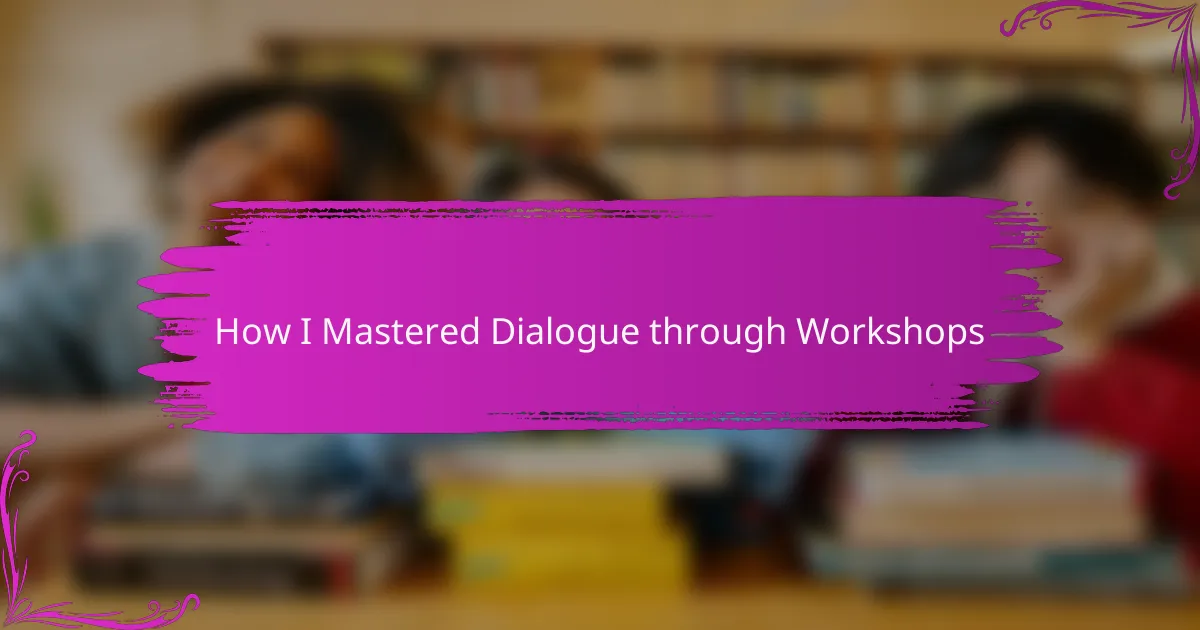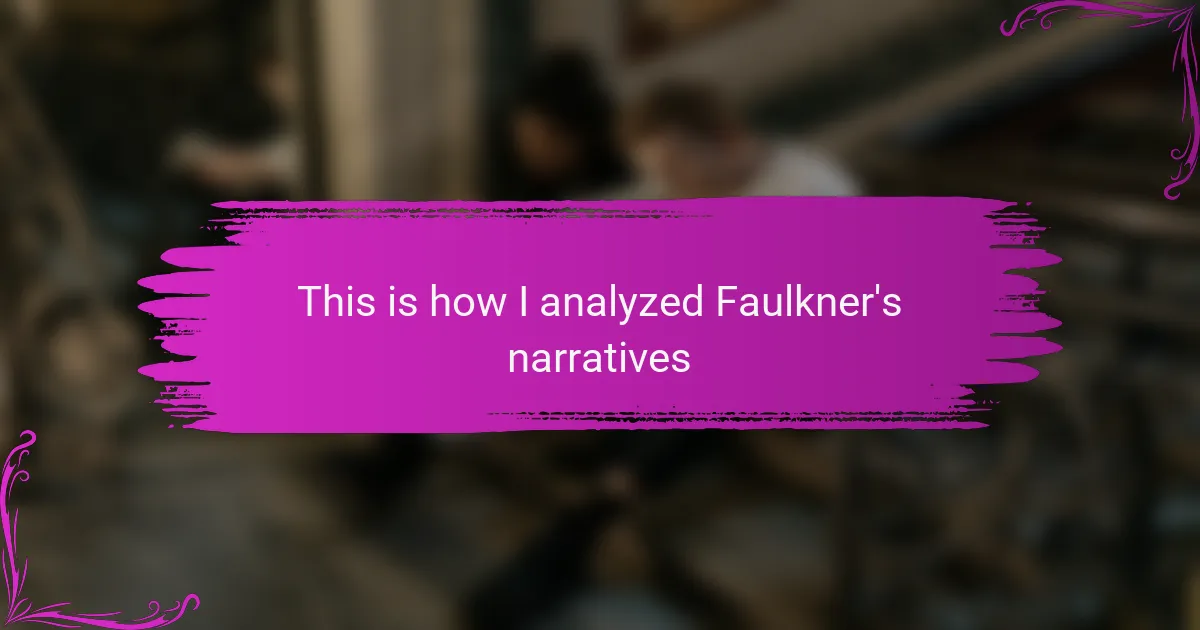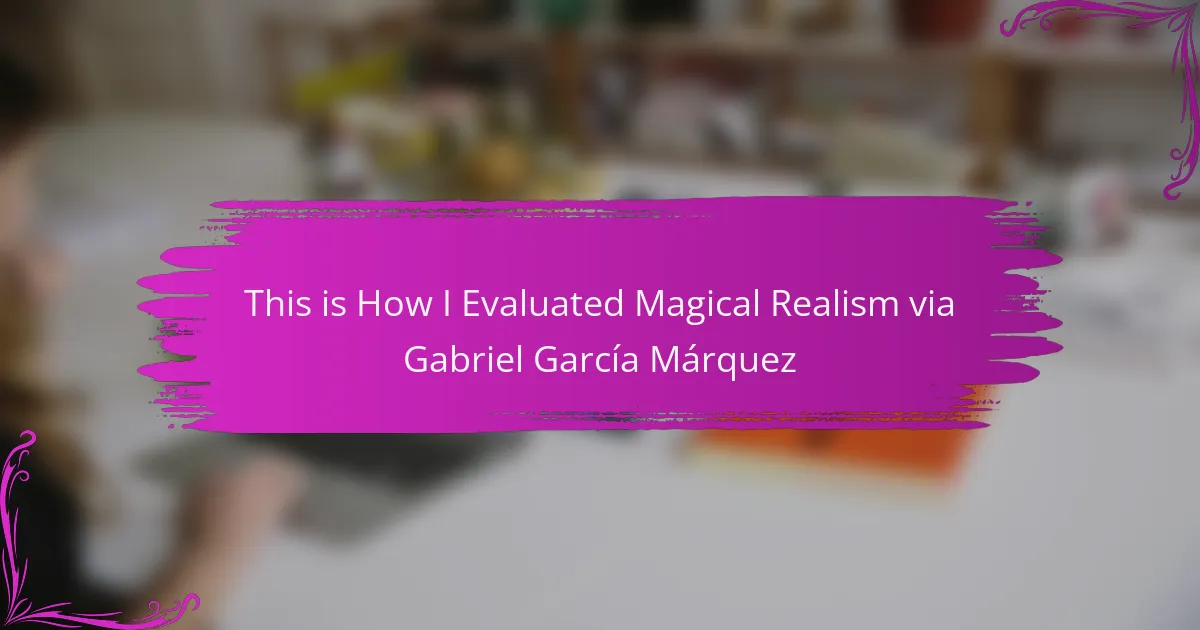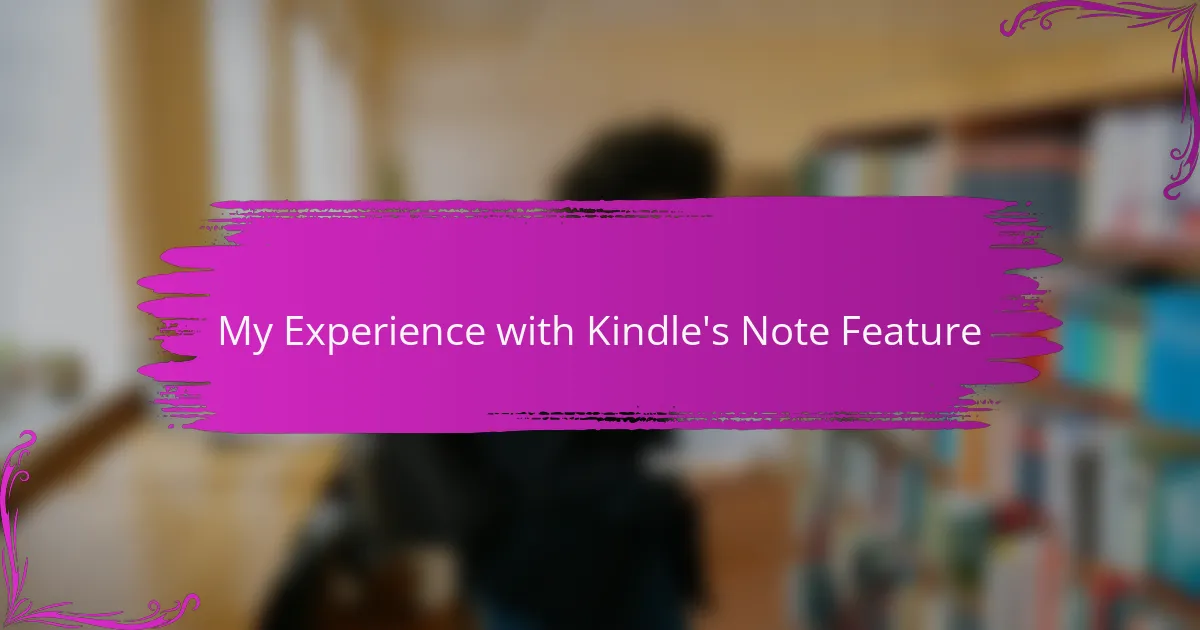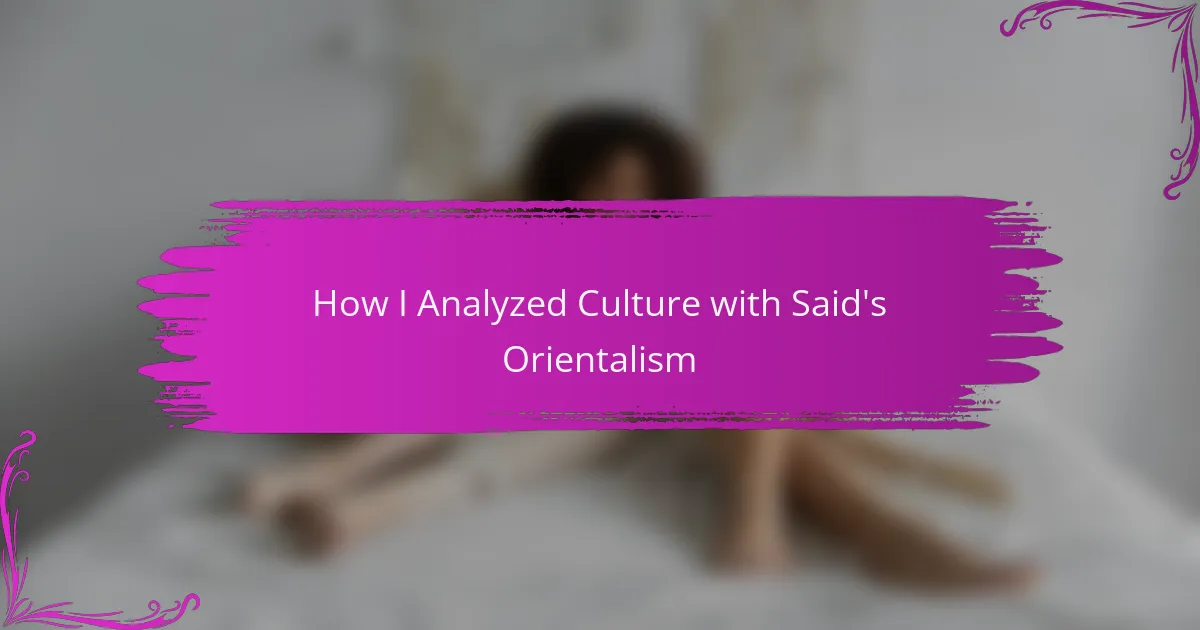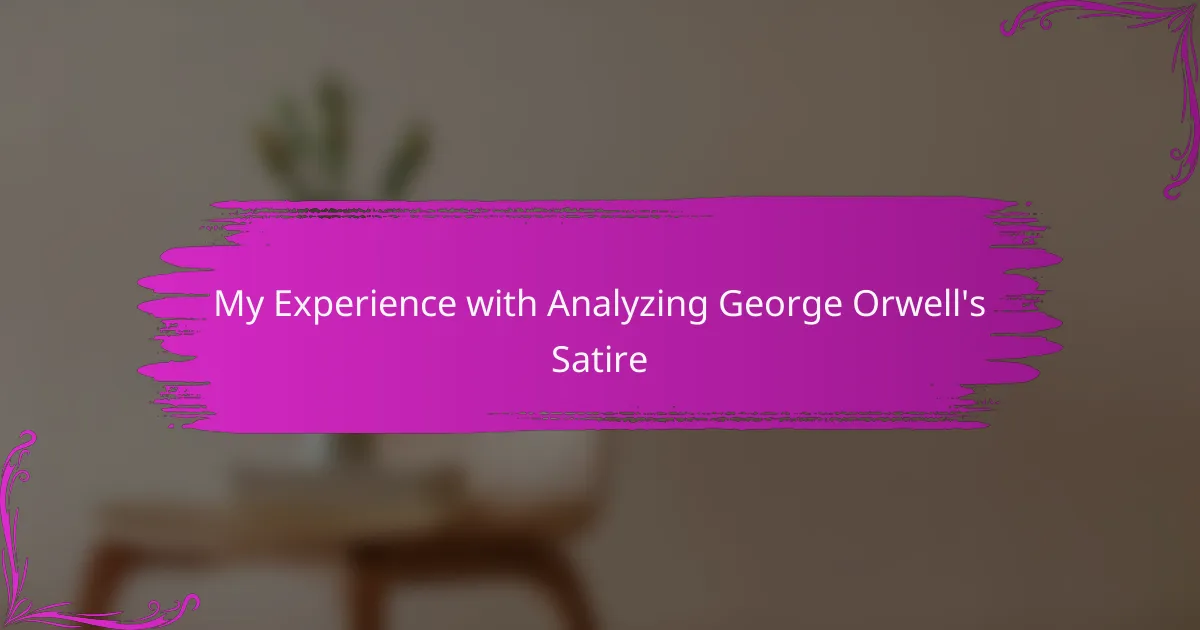Key takeaways Kahoot enhances student engagement in literature education through interactive quizzes that foster competition and collaboration. Immediate feedback provided by Kahoot allows both students and educators to assess understanding and adjust learning strategies on the spot. Creating effective quizzes with clear objectives, varied question difficulties, and relatable visuals is essential for maximizing student participation […]
Key takeaways Utilizing online thesauruses enhances vocabulary, improves writing skills, and fosters creativity. A strong vocabulary empowers clearer expression and deeper understanding of literature. Selecting the right thesaurus involves considering usability, contextual examples, and personal writing style. Consistent practice and engagement with diverse texts are crucial for long-term vocabulary growth. Literature education resources overview When […]
Key takeaways Virginia Woolf employs innovative narrative techniques, like stream-of-consciousness and non-linear storytelling, to deepen emotional engagement and character exploration. The narrative structure and style in her works provoke readers to reflect on their own lives and perceptions, enhancing the connection between literature and personal experience. Woolf’s use of vivid imagery and symbolism amplifies themes […]
Key takeaways Maya Angelou’s poetry explores themes of resilience, identity, and empowerment, encouraging personal reflection and connection. Her use of musical rhythm and vivid imagery creates a powerful emotional impact, inviting readers to engage deeply with her work. Incorporating poetry in education enhances students’ emotional expression, critical thinking, and self-confidence, allowing them to articulate their […]
Key takeaways Authentic dialogue captivates readers by reflecting real emotions and motivations, enhancing character development. Workshops foster collaboration and provide practical feedback, significantly improving writing skills through shared experiences. Key skills like active listening, concise expression, and emotional resonance are essential for crafting impactful dialogue. Utilizing diverse resources such as books, online courses, and writing […]
Key takeaways Faulkner’s narratives utilize non-linear time and stream-of-consciousness techniques, allowing readers to deeply engage with characters’ inner struggles and perceptions. The themes of memory, identity, and the tension between tradition and change are central to Faulkner’s works, resonating with readers on a personal level. Literature analysis enhances comprehension and critical thinking, encouraging readers to […]
Key takeaways Magical realism blends the extraordinary with the ordinary, challenging perceptions of reality and exploring cultural identities. Key themes in Gabriel García Márquez’s works include the exploration of time, solitude, and the integration of magical elements in daily life. The genre provokes emotional responses, prompting readers to reflect on their own experiences and the […]
Key takeaways Kindle’s note feature enhances engagement by allowing real-time highlights and reflections, making reading an active dialogue with the text. Digital note-taking promotes organization through searchable annotations, significantly improving efficiency compared to traditional methods. Effective note-taking tips include summarizing thoughts, organizing by themes, and regularly reviewing notes to reinforce learning and insights. Personal experiences […]
Key takeaways Edward Said’s “Orientalism” reveals how Western literature has historically portrayed Eastern cultures through biased and simplistic representations. Cultural analysis emphasizes the importance of understanding the power dynamics in narratives, highlighting marginalized voices and their absence in mainstream literature. In educational settings, engaging in critical thinking and comparative studies can challenge stereotypes and enhance […]
Key takeaways Satire, as exemplified by Orwell, uses humor and irony to provoke thought about societal norms and authority. Analyzing literature enhances critical thinking and fosters empathy, allowing readers to engage with diverse perspectives. Understanding the context in which a work is created enriches the interpretation of its satirical elements. Orwell’s works, like “Animal Farm” […]
